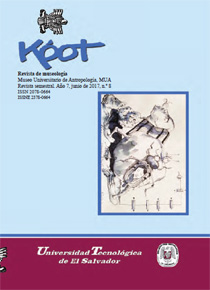National identity, elite history and the press in Costa Rica. The State Funerals of Mr. Cleto González Víquez (1937) and of Mr. Braulio Carrillo Colina (1972)
DOI:
https://doi.org/10.5377/koot.v0i8.5848Keywords:
Cleto González Víquez, Braulio Carrillo, State, Costa Rican national identity, pressAbstract
The state funeral of Cleto González Víquez (1937) allowed the contemporary leaders of Costa Rica to praise the character of this former president as a moral and patriotic icon. His exalted qualities included his love for work, for study, for home, and his respect for democracy, his humbleness, dedication and sacrifice for the country. This with the intention to reinforce the values on which the Costa Rican national identity was based. In the end, the real intention was to obscure the inequality and exploitation from the ruling class. On the other hand, the arrival of the mortal remains of Don Braulio Carrillo to the country in 1972, was used by the government of Jose Figueres Ferrer to convey a vision of the history and the politics from an elitist standpoint, where the State is defined as the direct and unique creation of the ruling class. This was built to regulate and channel social conflict. The intellectuals who wrote about this fact did it without any historical bases since they intended to communicate a feeling of national identity and sacrifice for the country.
Revista de Museología "Kóot" No.8 2017: 9-23Downloads
1111

